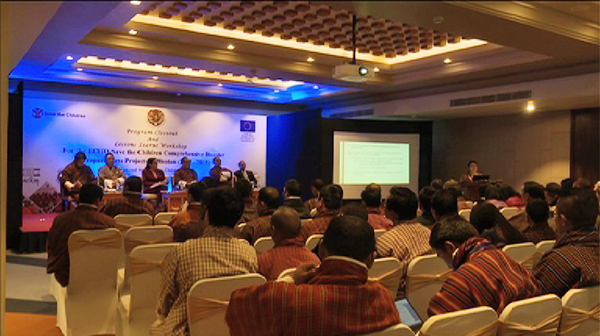 The education sector is better prepared for disasters today with the implementation of European Community Humanitarian Office (ECHO) – Save the Children Projects from 2011 to 2018. However, the lack of trained response team still remains a major challenge.
The education sector is better prepared for disasters today with the implementation of European Community Humanitarian Office (ECHO) – Save the Children Projects from 2011 to 2018. However, the lack of trained response team still remains a major challenge.
This was highlighted during the lessons sharing workshop on the ECHO program held in Thimphu yesterday.
As part of the project, over 200 disaster focal teachers and principals from 131 schools were trained on disaster risk management (DRM) between 2013 and 2014. The project also included a Comprehensive Disaster Management Project for Education Sector and a Comprehensive Disaster Management Project for Bhutan.
Despite these initiatives, the lack of trained response team at the school level, community level and national level was one of the key challenges.
Karma Doma Tshering, Disaster Risk Reduction Project Manager with Save the Children Bhutan said that although the education sector is prepared with all the procedures and mechanisms in place there are gaps in terms of response team. “We do not have well equipped response teams who would be able to respond as per their roles and responsibilities that are envisioned in the guideline and the Act,” she said.
She pointed out the need to build capacity across local, dzongkhag and national levels since mobilisation of response teams across these levels would take time given Bhutan’s mountainous topography.
To address these issues and challenges, three key priorities have been identified: strengthen education sector capacities for effective response and education continuity after disasters, enhance DRM capacities of the most vulnerable groups and ensure sustainability through integration of DRM into school curriculum and quality monitoring systems.
The European Union Humanitarian Aid funded the ECHO-Save the Children Disaster Risk Reduction Project.






